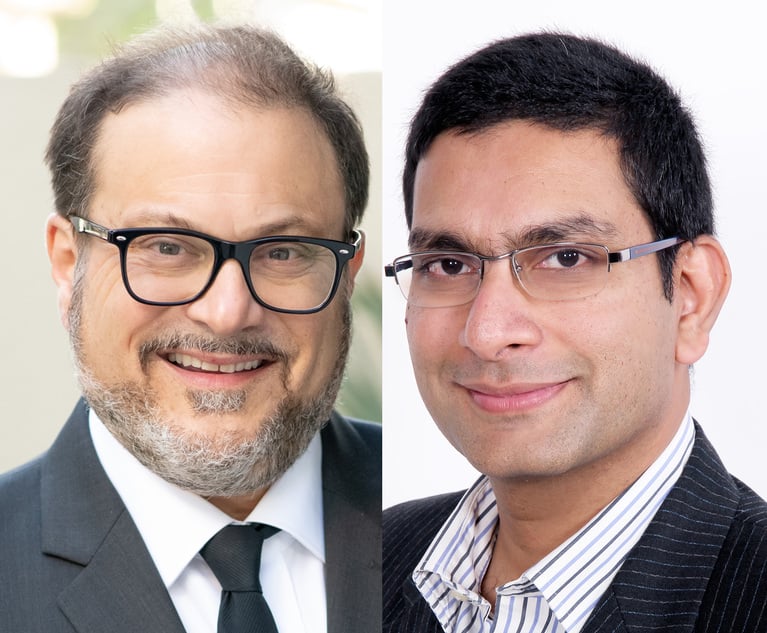How I Made Partner: Pillsbury Winthrop's Tamara Bruno
"Make yourself indispensable. Identify a role that you can effectively fill as a partner, whether it's in an emerging or in-demand specialty, a geographic area, a major client relationship or some combination."
March 20, 2020 at 12:31 PM
6 minute read
Tamara Bruno, 37, Pillsbury Winthrop Shaw Pittman
Office: Houston.
Practice area: Insurance recovery.
Law school and year of graduation: Hofstra University Maurice A. Deane School of Law, 2009.
How long have you been at the firm? Five years.
How long were you an associate at the firm? Two years; I was counsel for three years.
Were you an associate at another firm before joining your present firm? Yes, I was an associate at Kasowitz Benson Torres for five years.
What year did you make partner at your current firm? Jan.1, 2020.
What's the biggest surprise you experienced in becoming partner? I was surprised at the increase in the amount and frequency of data and information about the business and finances of the firm being communicated to our partnership. Our firm is transparent about matters such as compensation and profitability, which provides helpful context for our individual efforts.
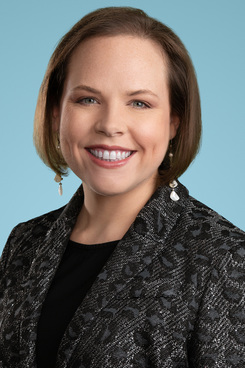 Tamara Bruno.
Tamara Bruno.What do you think was the deciding point for the firm in making you partner? In my experience, making partner was largely about the title catching up with the work. Rather than a specific deciding or turning point, I think a key for my candidacy was a long history of developing a reputation as an expert in my specialty both inside and outside the firm. I came to Pillsbury having years of experience in insurance recovery already. The firm allowed me to use that experience to gain opportunities to publish and speak regularly on insurance topics before bar and industry groups. I also joined Pillsbury in an earlier stage of a period of rapid growth for our insurance recovery group, which brought with it opportunities to work on significant matters with major clients. In addition, I was able to take on work in emerging issues, particularly cyberinsurance, which helped shape the role I'm able to take on as a partner.
Describe how you feel now about your career now that you've made partner. It feels like reaching base camp and preparing for the climb ahead. It is scary in a way because you feel like you're starting from the beginning all over again. But there is also a sense of security and validation in being elected to partner that provides a foundation for the next stages in my career and allows for goals beyond making partner. For me, those include supporting the firm's growth efforts in Texas and expanding my practice into emerging issues.
What's the key to successful business development in your opinion? I think the first key to business development efforts is just to keep doing them. Even with everything else taking up your attention, incorporate some amount of business development into your routine every day, even if it's just following up with a contact you haven't spoken to for a while or sharing an article. Always keep an eye out for and pursue business development opportunities. Organizations need volunteers, writers and speakers. You'll find the opportunities if you look for them. Beyond that, it's important to think ahead and recognize emerging issues in your practice area and your clients' or potential clients' businesses. The law is ever-evolving and often the most significant issues that your clients will need your help with as outside counsel are those that they have not experienced before. Understand where your services fit into the issues faced by your clients and be able to explain that concisely and in an actionable way. And then get in front of those people in any way you can.
What's been the biggest change, day-to-day, in your routine since becoming partner? The biggest change in my routine has been an increase in interactions with partners outside of my practice group and local office, both on issues of firm business or administration and client questions.
Who had the greatest influence in your career that helped propel you to partner? I was incredibly lucky to begin my career working for several women senior partners who introduced me to my area of practice—insurance recovery—and who mentored my early associate years. They were Randy Paar, Robin Cohen and Elizabeth Sherwin, at the time all partners at Kasowitz. Randy and Liz have since passed. I think of them constantly and miss them dearly. In moving to Pillsbury, I joined an extremely energetic and fast-growing insurance recovery group with partners who have taught me everything I know about networking and business development, including my partner in Houston, Vince Morgan, and co-practice leader Peter Gillon.
What's the best piece of advice you could give an associate who wants to make partner? If you want to make partner, think early and often about your position and what path exists for you to get there. What metrics does your firm consider in making partnership decisions? If those benchmarks are not easy to find, ask a mentor. Ask yourself if there is a realistic path to partnership in your practice and firm. Is your practice area valued at the firm, and is it likely to make financial sense for them to make a partner when you're at that point? If not, you may want to consider another firm or group. Be curious about the business of the firm. Take on billing, business development or client management efforts that may not be billable but that provide a peek at how the sausage gets made. Make yourself indispensable. Identify a role that you can effectively fill as a partner, whether it's in an emerging or in-demand specialty, a geographic area, a major client relationship or some combination.
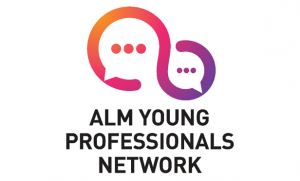 ALM Young Professionals Network is a LinkedIn group where young professionals can find inspiration and help in dealing with those challenges we all face early in our careers. From salary negotiations to leadership to addressing diversity and inclusion issues and more, our editors will guide conversations on how tomorrow's leaders can tackle every career milestone. We are excited about this pivotal group. Click here to join.
ALM Young Professionals Network is a LinkedIn group where young professionals can find inspiration and help in dealing with those challenges we all face early in our careers. From salary negotiations to leadership to addressing diversity and inclusion issues and more, our editors will guide conversations on how tomorrow's leaders can tackle every career milestone. We are excited about this pivotal group. Click here to join.
This content has been archived. It is available through our partners, LexisNexis® and Bloomberg Law.
To view this content, please continue to their sites.
Not a Lexis Subscriber?
Subscribe Now
Not a Bloomberg Law Subscriber?
Subscribe Now
NOT FOR REPRINT
© 2025 ALM Global, LLC, All Rights Reserved. Request academic re-use from www.copyright.com. All other uses, submit a request to [email protected]. For more information visit Asset & Logo Licensing.
You Might Like
View All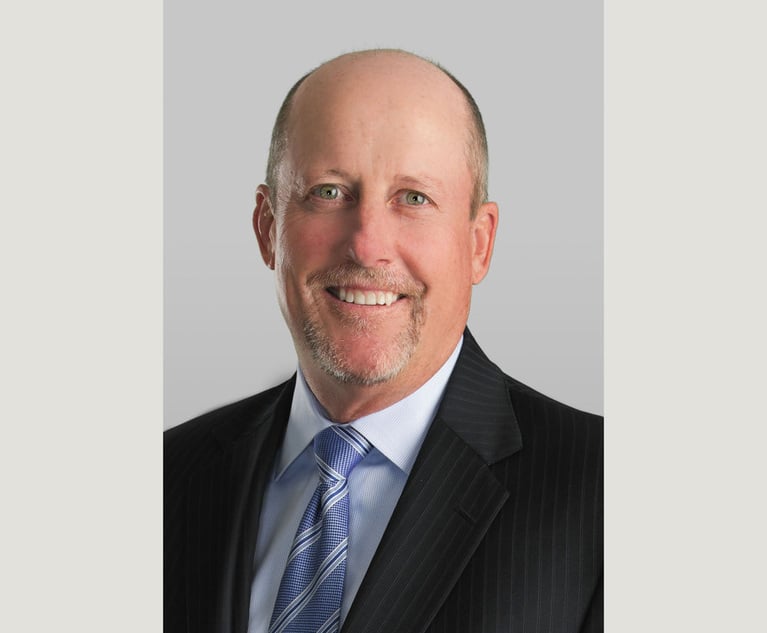
How I Made Managing Partner: 'Be the Uniting Voice of the Firm,' Says George Ogilvie of McDonald Carano
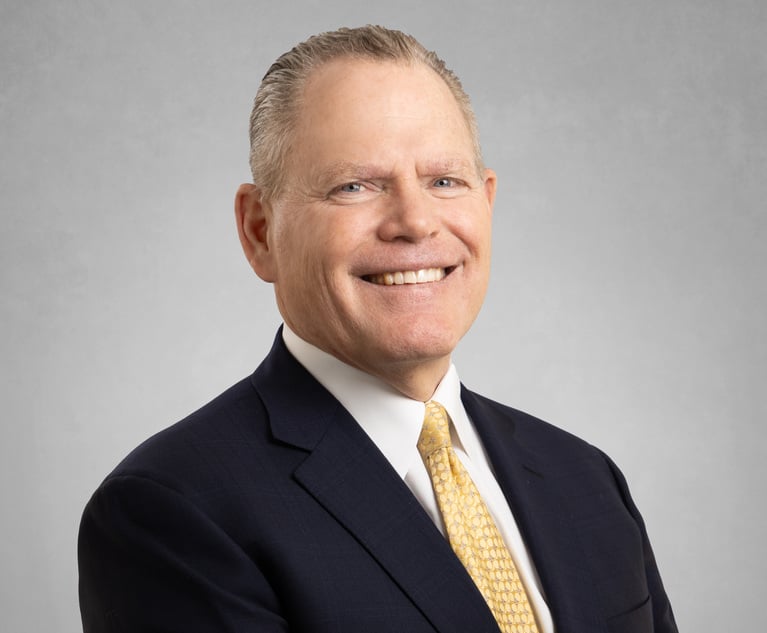
How I Made Managing Partner: 'Educate Yourself About Law Firm Economics,' Says Gregory Hessinger of Mitchell Silberberg
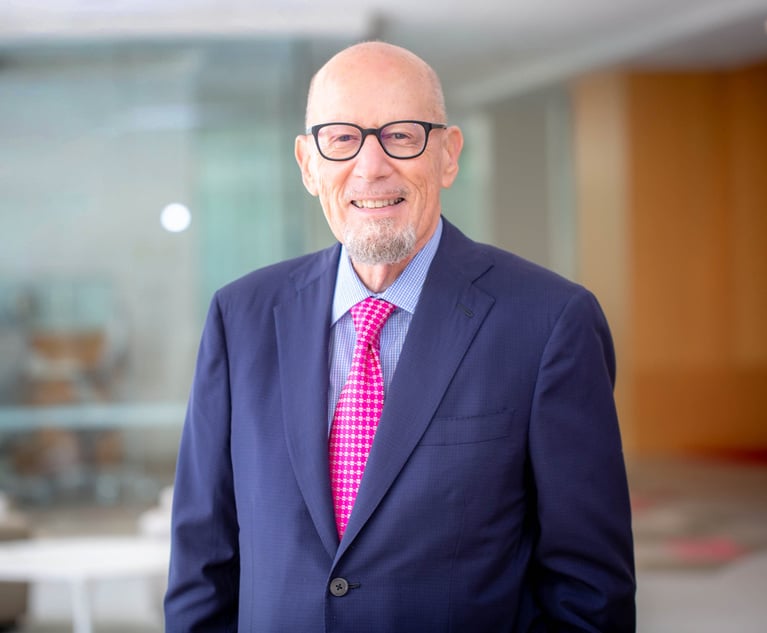
Cozen O'Connor's Bernard Nash Pioneered the Modern State AGs Practice. Now He's Hanging Up His Boots
6 minute readLaw Firms Mentioned
Trending Stories
Who Got The Work
J. Brugh Lower of Gibbons has entered an appearance for industrial equipment supplier Devco Corporation in a pending trademark infringement lawsuit. The suit, accusing the defendant of selling knock-off Graco products, was filed Dec. 18 in New Jersey District Court by Rivkin Radler on behalf of Graco Inc. and Graco Minnesota. The case, assigned to U.S. District Judge Zahid N. Quraishi, is 3:24-cv-11294, Graco Inc. et al v. Devco Corporation.
Who Got The Work
Rebecca Maller-Stein and Kent A. Yalowitz of Arnold & Porter Kaye Scholer have entered their appearances for Hanaco Venture Capital and its executives, Lior Prosor and David Frankel, in a pending securities lawsuit. The action, filed on Dec. 24 in New York Southern District Court by Zell, Aron & Co. on behalf of Goldeneye Advisors, accuses the defendants of negligently and fraudulently managing the plaintiff's $1 million investment. The case, assigned to U.S. District Judge Vernon S. Broderick, is 1:24-cv-09918, Goldeneye Advisors, LLC v. Hanaco Venture Capital, Ltd. et al.
Who Got The Work
Attorneys from A&O Shearman has stepped in as defense counsel for Toronto-Dominion Bank and other defendants in a pending securities class action. The suit, filed Dec. 11 in New York Southern District Court by Bleichmar Fonti & Auld, accuses the defendants of concealing the bank's 'pervasive' deficiencies in regards to its compliance with the Bank Secrecy Act and the quality of its anti-money laundering controls. The case, assigned to U.S. District Judge Arun Subramanian, is 1:24-cv-09445, Gonzalez v. The Toronto-Dominion Bank et al.
Who Got The Work
Crown Castle International, a Pennsylvania company providing shared communications infrastructure, has turned to Luke D. Wolf of Gordon Rees Scully Mansukhani to fend off a pending breach-of-contract lawsuit. The court action, filed Nov. 25 in Michigan Eastern District Court by Hooper Hathaway PC on behalf of The Town Residences LLC, accuses Crown Castle of failing to transfer approximately $30,000 in utility payments from T-Mobile in breach of a roof-top lease and assignment agreement. The case, assigned to U.S. District Judge Susan K. Declercq, is 2:24-cv-13131, The Town Residences LLC v. T-Mobile US, Inc. et al.
Who Got The Work
Wilfred P. Coronato and Daniel M. Schwartz of McCarter & English have stepped in as defense counsel to Electrolux Home Products Inc. in a pending product liability lawsuit. The court action, filed Nov. 26 in New York Eastern District Court by Poulos Lopiccolo PC and Nagel Rice LLP on behalf of David Stern, alleges that the defendant's refrigerators’ drawers and shelving repeatedly break and fall apart within months after purchase. The case, assigned to U.S. District Judge Joan M. Azrack, is 2:24-cv-08204, Stern v. Electrolux Home Products, Inc.
Featured Firms
Law Offices of Gary Martin Hays & Associates, P.C.
(470) 294-1674
Law Offices of Mark E. Salomone
(857) 444-6468
Smith & Hassler
(713) 739-1250




